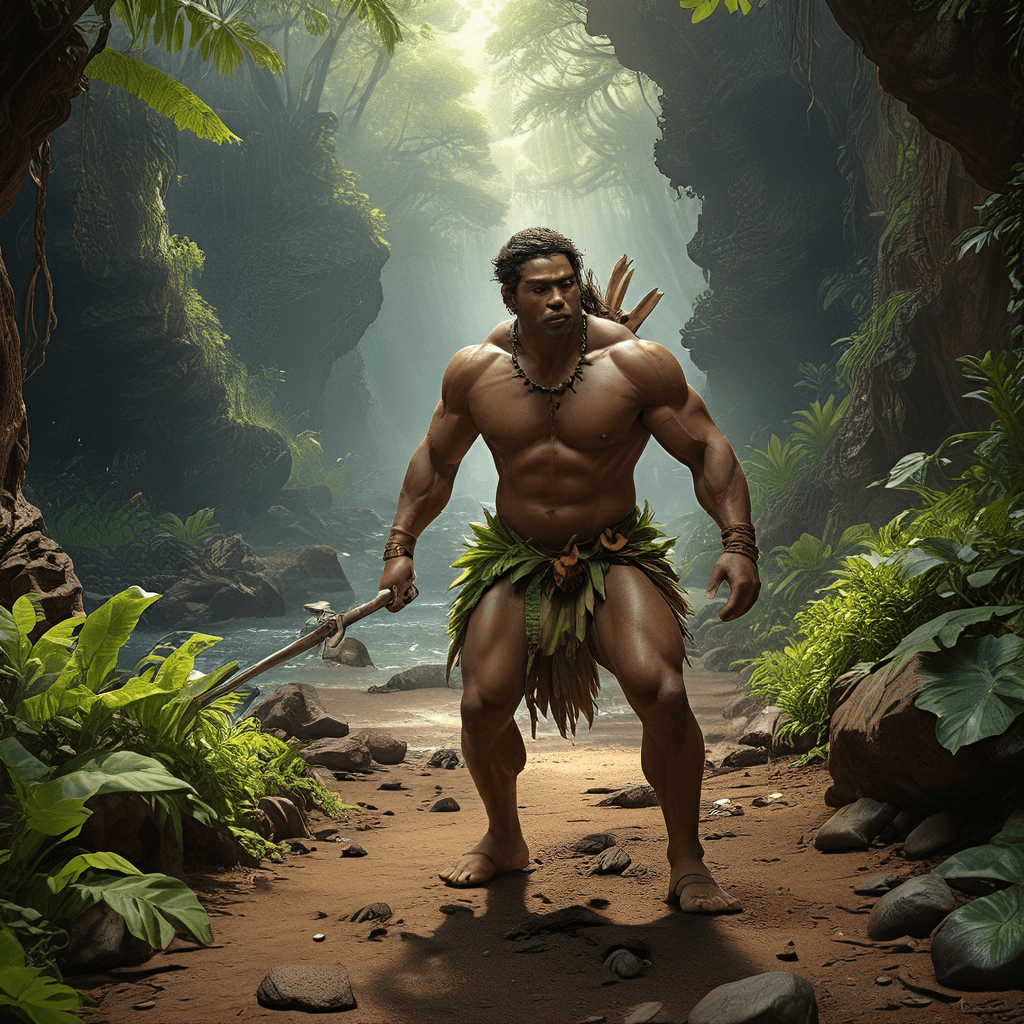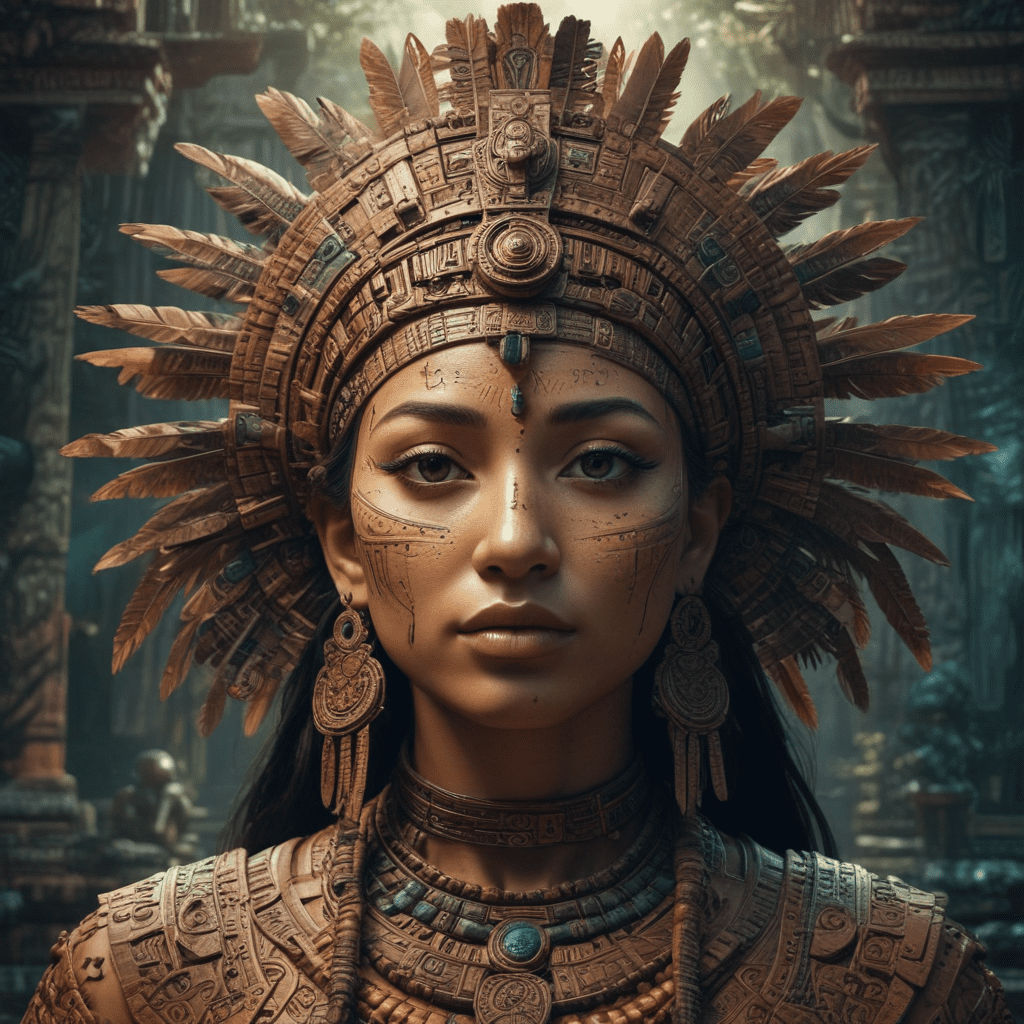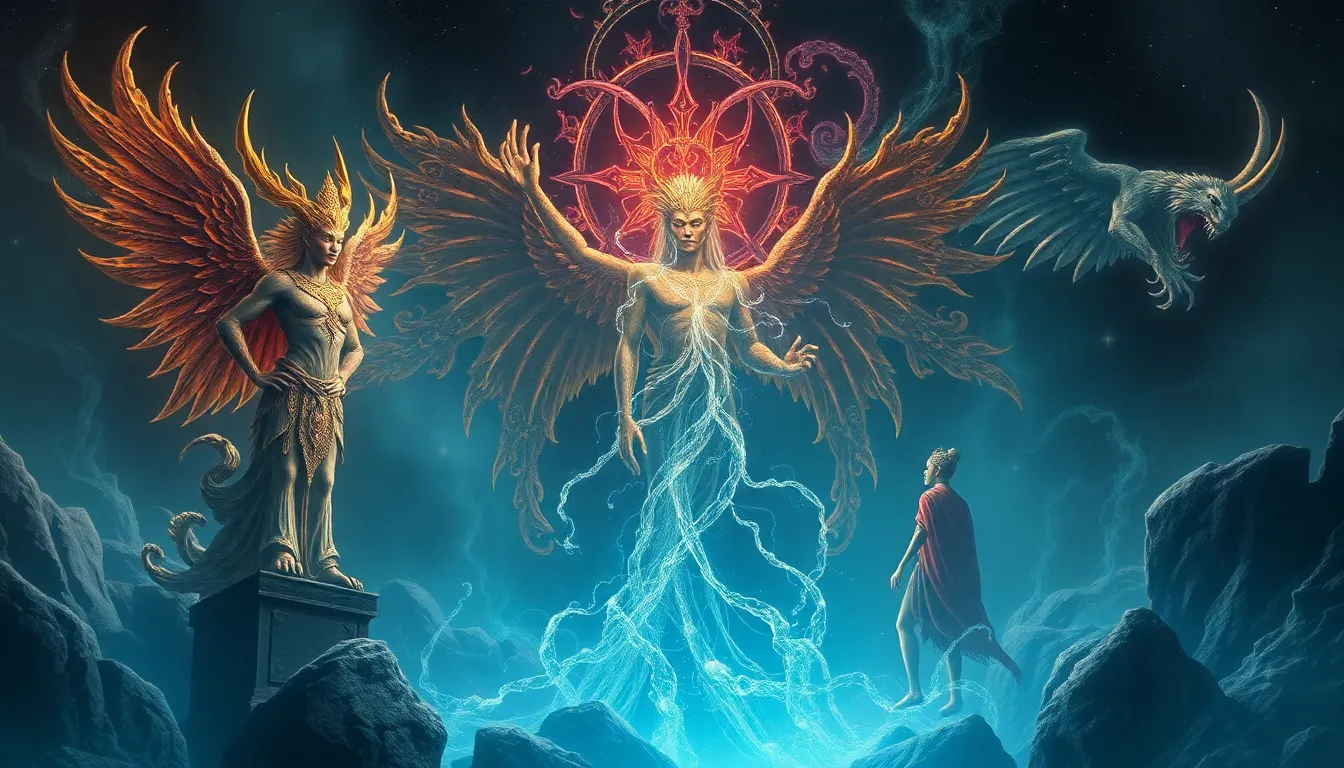Introduction: The Hawaiian Underworld – A World of Shadows and Transformation
In Hawaiian mythology, death is not an end but a transformation, a journey into the realm of spirits known as "Po." This underworld is a place of mystery, where the souls of the departed reside and undergo a profound spiritual shift. The concept of Po is woven deeply into Hawaiian culture, impacting their understanding of life, death, and the delicate balance between the physical and spiritual world. Navigating the complexities of Po is a central theme in Hawaiian mythology, revealing a rich tapestry of beliefs about the afterlife and the interconnectedness of all things.
The Concept of “Po” – The Hawaiian Underworld
The Hawaiian underworld, known as Po, is a multifaceted realm shrouded in shadow and mystery. It is not a place of eternal punishment, but rather a transformative space where spirits journey and evolve. Po is often depicted as a vast expanse of darkness, punctuated by pockets of light and activity. It is a realm where the deceased reside, interacting with spirits and ancestors, undergoing trials and learning the lessons of their earthly life. Po is not merely a destination but a state of being, a place where the boundaries between the physical and spiritual realms become blurred.
The Journey to Po: A Passage Through Darkness
The transition from life to Po is a complex process, often described as a perilous journey through darkness. The soul, freed from its mortal form, must navigate through shadowy landscapes, guided by spirits and ancestors. The path itself is full of challenges and trials, symbolizing the lessons and experiences that the soul must confront before reaching the heart of Po. The journey is not only physical but also spiritual, a process of shedding the earthly attachments and preparing for a new existence.
Deities of the Underworld: Guardians and Guides
Within the depths of Po reside powerful deities who guide and oversee the spirits’ journey. These figures, such as the goddess of death, Hiʻiaka, play crucial roles in the afterlife, acting as protectors, judges, and mentors to the departed. They ensure order and balance, guiding the souls towards their appropriate spiritual destinations. The deities of Po are not simply fearsome figures; they embody the wisdom and power of the spiritual world, offering guidance and support to those who have passed on.
The Role of Spirits and Ancestors in Po
The spirits and ancestors play a significant role in the Hawaiian underworld. They serve as guides, protectors, and teachers, offering support and wisdom to the souls newly arrived in Po. The relationship between the living and the departed remains strong, and the ancestors are believed to influence the lives of those still on Earth. Communication with the spirits is essential, fostering a sense of connection between the realms. Through dreams, visions, and rituals, the living can seek the guidance and wisdom of their ancestors, reinforcing the belief in the interconnectedness of life and death.
The Significance of Dreams and Visions in Navigating Po
Dreams and visions play a crucial role in navigating the complexities of Po. They are believed to be pathways to the spiritual world, providing glimpses into the realm of spirits and ancestors. In Hawaiian mythology, dreams are not just fleeting images but powerful messages from the spirit world, offering guidance, warnings, and insights into the afterlife. The ability to interpret dreams is highly valued, as it helps in understanding the messages from the ancestors and deities of Po. Visions, often experienced during rituals or moments of deep contemplation, provide further insight into the spiritual realm, offering glimpses of the afterlife and the souls of the departed.
The Underworld as a Place of Testing and Transformation
Po is not simply a place of rest but a transformative space where spirits undergo trials and tribulations. These challenges, often symbolic of the lessons learned in life, are designed to help the spirit evolve and move closer to their true spiritual nature. The journey through Po is a process of purification, where the spirit sheds its earthly attachments and embraces a higher state of being. This transformation may involve confronting their past actions, confronting their fears, and seeking forgiveness from those they have wronged. The trials in Po are not intended to punish but to guide the spirit on their path to spiritual enlightenment.
The Importance of Ritual and Offerings in Connecting with Po
Rituals and offerings play a vital role in connecting with the spirits of Po and honoring the ancestors. Through these practices, the living can establish communication with the departed, seeking their guidance and blessings. Offerings, such as food, flowers, or precious objects, are a way of showing respect and gratitude to the spirits of Po. These offerings are believed to bridge the gap between the physical and spiritual worlds, facilitating communication and allowing the living to connect with their ancestors. Rituals, such as chants, prayers, and dances, are performed to honor the deceased and seek their guidance. Through these practices, the living can tap into the wisdom and power of the spiritual world, ensuring a harmonious balance between the realms.
Modern Interpretations of the Hawaiian Underworld
Even in modern times, the concept of Po remains a significant part of Hawaiian culture. While the traditional beliefs may have evolved, the core principles of the afterlife, transformation, and the interconnectedness of life and death persist. Contemporary interpretations of Po reflect the evolving understanding of the spiritual realm, incorporating modern perspectives while maintaining the essence of traditional beliefs. These interpretations often emphasize the importance of personal growth, spiritual exploration, and the connection to nature and the ancestors.
The Enduring Legacy of Navigating the Underworld in Hawaiian Culture
The mythology of Po continues to shape the Hawaiian worldview, offering a profound understanding of life, death, and the eternal cycle of transformation. The concept of the underworld provides a framework for navigating the complexities of human existence, offering solace in the face of loss and a sense of purpose in the journey beyond life. The enduring legacy of Po is evident in the rituals, traditions, and cultural practices that honor the ancestors and maintain a strong connection to the spiritual realm. Navigating the Hawaiian underworld, both physically and spiritually, remains a central theme in Hawaiian culture, offering a unique perspective on the afterlife and the interconnectedness of all things.
FAQ
Q: What is the Hawaiian underworld called?
A: The Hawaiian underworld is called "Po." It is a place of transformation, where spirits journey and evolve.
Q: What happens to people after they die in Hawaiian mythology?
**A: **In Hawaiian mythology, death is not an end but a transformation. The soul journeys to Po, the underworld, where it undergoes trials and purification before reaching a new state of being.
Q: Are there any deities related to the Hawaiian underworld?
A: Yes, there are several deities related to the Hawaiian underworld, such as the goddess of death, Hi'iaka, who guides and protects spirits as they navigate Po.
Q: What is the significance of dreams and visions in Hawaiian mythology?
A: Dreams and visions are believed to be pathways to the spiritual world, offering glimpses into the realm of spirits and ancestors. They provide messages from the spirit world, offering guidance and insights into the afterlife.
Q: How do people connect with the spirits of Po?
**A: ** Rituals and offerings are essential for connecting with the spirits of Po and honoring the ancestors. Offerings, such as food and flowers, show respect and gratitude to the spirits, while rituals, like chants and prayers, seek their guidance.
Q: How does the concept of Po influence modern Hawaiian culture?
A: The concept of Po continues to influence Hawaiian culture, offering a framework for navigating the complexities of life and death. It provides a sense of purpose in the journey beyond life, emphasizing the importance of personal growth, spiritual exploration, and the connection to nature and the ancestors.


